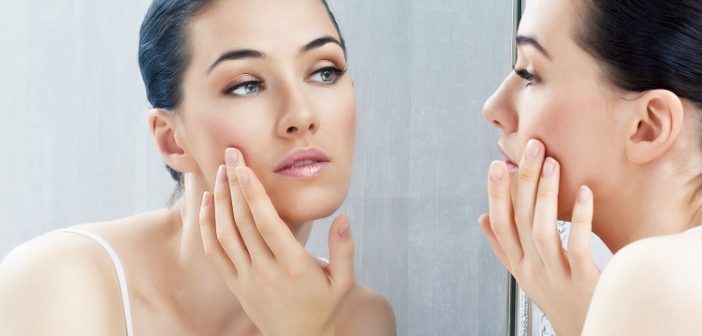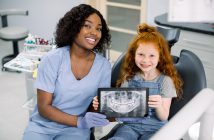Acne is everyone’s nightmare. Its breakouts are frustrating, and the scars acne leaves behind can be disheartening. What’s good is whether the scars are sunken or raised, they can be treated. However, you have to eliminate any acne before getting treatment, as new outbreaks can cause new acne scars. Some treatments can’t work with any acne medication. The inflammation caused by acne breakouts may reduce the effectiveness of the treatment.
Types of Acne Scars
Scars occur when acne breakout deeply penetrates the skin and destroys beneath tissues. Before getting any scar treatment, ensure you know the available types of acne scars. They all respond differently to treatments, and some treatments are better for certain types of acne. Different types of acne scars include:
1. Depressed or Atrophic Scars
Atrophic scars commonly occur on the face. The scar appears below the surrounding skin and results from a lack of collagen formation when the acne wound is healing. Atrophic scars are available in three types, including boxcar, rolling, and ice pick.
2. Raised or Hypertrophic Scars
Hypertrophic scars commonly occur on a back or chest acne. The scars appear above the surrounding skin surface and result from the production of too much collagen during the healing process.
How to Eliminate Acne Scars
Acne is a common skin concern affecting over eighty percent between 11 and 30 years old. It can appear on your face, shoulder, and chest. Many believe acne irritation doesn’t fade away, but it does. When the irritation goes away, then you can get rid of the remaining scars.
The first step of treating acne is consulting a dermatologist. They will focus on controlling your acne. The more control you have over the breakouts, the fewer scars you’ll have. The good thing is, all acne scars are not permanent. If your doctor attends to your acne scars, they will explore different treatment options.
At-Home Scar Treatment
Most dermatologists recommend at-home treatment for your acne scars. They believe they are more efficient and cost-effective as you use products available at home. Here are some home treatments for acne scars.
1. Alpha-hydroxy Acids
Alpha hydroxy acids are mostly found in acne treatment products. They eliminate dead skin and constrain blocked pores and are also effective for treating invisible acne scars. It exfoliates the outer skin layer to remove rough skin and discoloration. Alpha hydroxy acid is suitable for all types of acne scars.
2. Lactic acid
Proven studies discovered that dermatologists perform lactic acid peels every two weeks to enhance the skin’s appearance and texture and lighten acne scars. Lactic acid is available in numerous serums, ointments, and peels. Additionally, you can use a spot treatment containing natural lactic acid as a toner. Lactic acid at-home treatment is effective for treating all acne scars types.
3. Salicylic Acid
Most people with acne treat it using salicylic acid. The acid is available in every acne treatment option, including lotions, pads, face cleansers, and spot treatments. When you apply salicylic acid typically, it eliminates redness and swelling, clears clogged pores, and exfoliates your skin. To get a more clear skin from acne scars, add salicylic acid products to your daily routine. Your doctor may also use it during chemical peels. When using salicylic acid, you may see a difference after several weeks. Salicylic acid is effective for treating all types of acne scars.
4. Retinoids
Retinoid is another effective at-home acne scar treatment. Apart from enhancing your skin texture and speeding cell regeneration, Retinoids reduce discoloration. They are also effective for your skin if it’s sun sensitive. Ensure you wear sunscreen every day after using any product containing Retinoids.
Retinoids creams and serums are purchased over the counter, and your doctor can prescribe them based on the severity of your condition. Products containing retinoids as an active ingredient are effective for treating depressed or atrophic scars.
In-office Scar Treatment Procedures
If at-home scar treatments are not effective, a dermatologist will give you other scar treatment options. Other scar treatment options you dermatologist may recommend are:
1. Dermabrasion
Dermabrasion is a common and the most effective facial scars treatment. While its principle is the same as the microdermabrasion you can apply at home, your doctor uses a wheel or wire brush to exfoliate your top skin layer intensely. The treatment is best for shallow scars available on the surface, like rolling scars and boxcars.
2. Microneedling
Microneedling, commonly known as collagen induction therapy, is a recently discovered treatment for acne scars. It uses small, handheld, needle-like rollers on the surface with acne scars. The treatment enhances skin texture, fine line and stimulates the production of collagen.
Microneedling effectively decreases acne scars’ depth, but you need about nine months to see the results. The treatment is effective on all skin tones and is best for treating depressed acne scars.
3. Chemical Peels
Chemical peels are robust chemical solutions to minimize deeper scars by eliminating the top skin layer. A dermatologist applies the chemical peel on your skin to cause a blister. They will then peel it off to create a new restored smoother skin than the previous one.
Peeling may cause swelling, redness, and at times cold sores. A chemical peel is a cost-effective treatment for acne scars as you only need to go through one treatment session. The treatment is available in different types ranging from mild to stronger solutions; it is best to talk to our doctor on the best type for you. Chemical peels are best for treating all acne scars, especially deeper scars.
4. Laser Resurfacing
Just like dermabrasion and chemical peel, laser resurfacing eliminates the upper skin layer. Patients report healing faster after the treatment, unlike other resurfacing treatments. But you have to keep the treated area covered until it heals completely.
Laser resurfacing is also effective if you experience repeated acne breakouts. However, it is ineffective for those with darker skin tones. The treatment is best for all types of acne scars and people with lighter skin tones.
Acne scars are disheartening, but there are also treatment options to eliminate them. Most acne scars are permanent, but your doctor can help you get the best treatment to make them less noticeable. You can treat acne scars by first preventing them.




